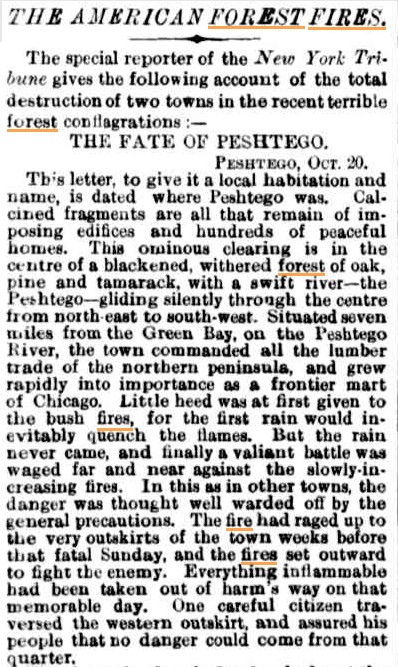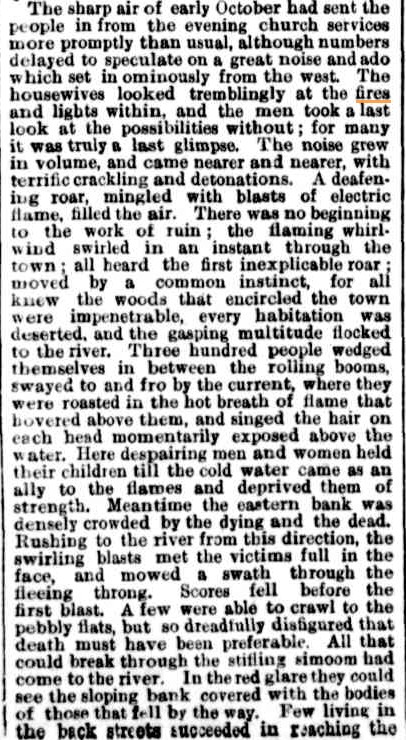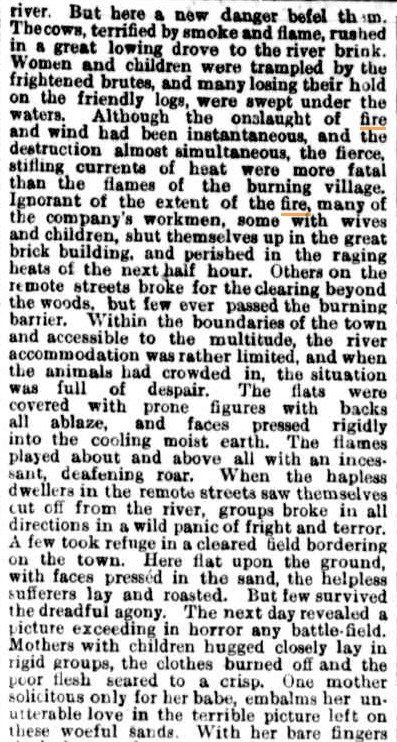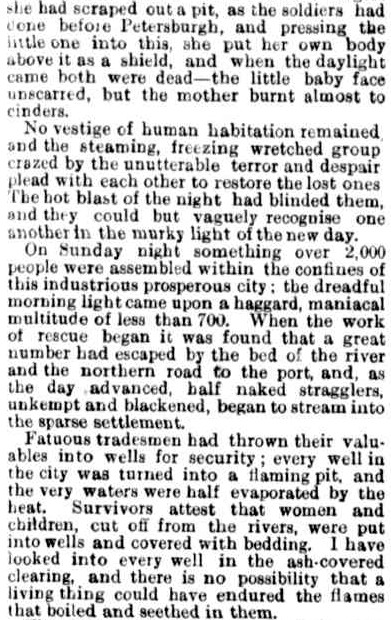Connecting the dots means assume you know the answer, and then use a small amount of data to back up your predetermined conclusion. Toss the huge bulk of evidence which contradicts what you are trying to prove.
“Slave Lake is not a one-off, we’re going to see more communities at risk in the future, whether it’s Quebec or Ontario or Manitoba or B.C.,” says Mike Flannigan, a professor with the Department of Renewable Resources at the University of Alberta. “We’ve seen the fires in Kamloops and Kelowna back in 2003 and now 2011 in Slave Lake.”
Those fires moved with a speed and intensity that caught firefighters off guard and proved impossible to contain. They were cousins to the so-called mega-fires that tore through Australia in 2009 and Russia in 2010, devastating huge regions and killing or injuring hundreds of people.
Like climate change itself, this is a global problem.
“It’s difficult to say that an individual fire is the result of climate change, but what I’m saying is that we are seeing more activity because of climate change,” says Flannigan, just one of the scientists connecting the dots.
Dr. Flannigan might be interested to know about a fast moving fire which happened in 1871.
The Argus 23 December 1871






He should also find out from the RCMP who started the fires in the townsite….I believe that is still under investigation…
The Chicago Fire was also in 1871. They blamed a cow back then, but I suppose we can blame the evil fossil fuel in the lamp that the cow kicked over.
It was on the same date in 1871
Oh good grief. Wildfires are a part of the Canadian experience.
Is there any uptrend in acres burned?
Interesting I spent a fair amount of time reading about the Peshtigo fire, and 2 days ago I used it in a hotair comment regarding the polls showing that Obama is down in Wisconsin: